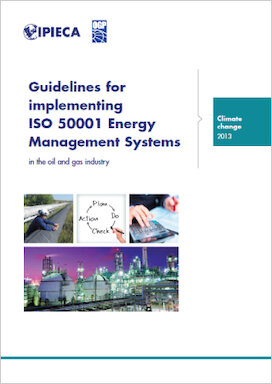Energy management through a well-structured 'energy management system' (EnMS) ensures that energy issues are properly taken into consideration in all aspects of the industry's activities. In July 2011, the International Organization for Standardization (ISO) released the ISO 50001 standard, Energy management systems - Requirements with guidance for use, which provides the essential framework and guidelines for establishing and operating an energy management system in general terms. Beyond the generic guidelines and recommendations of the ISO standard, this document provides further guidance from a more specific, oil and gas industry perspective, and includes examples and case studies directly relevant to oil and gas organizations and operations. It should be read in conjunction with ISO 50001.
Guidelines for implementing ISO 50001 energy management systems in the oil and gas industry

Related resources
- 2 September 2021
This document offers guidance for oil and gas industry JVs on the governance, policy development, implementation and management of HSSE&SR.
- 14 April 2014
The Oil Spill Industry Project (JIP) technical report (Revision 2016)
- 28 May 2011
Recognizing the need to update the original version of the Guidelines to reflect changing practices, Ipieca and API jointly initiated the development of this second edition of the Guidelines to continue to promote credible
- 28 June 2007
This document is the second of five greenhouse gas reduction 'project families' in an ongoing process of developing guidelines for project activities of interest to the oil and gas industry. Guidelines are provided for carbon dioxide capture and geological storage as an emission reduction option. The focus is on specific technical considerations and aspects rather than policy considerations.



